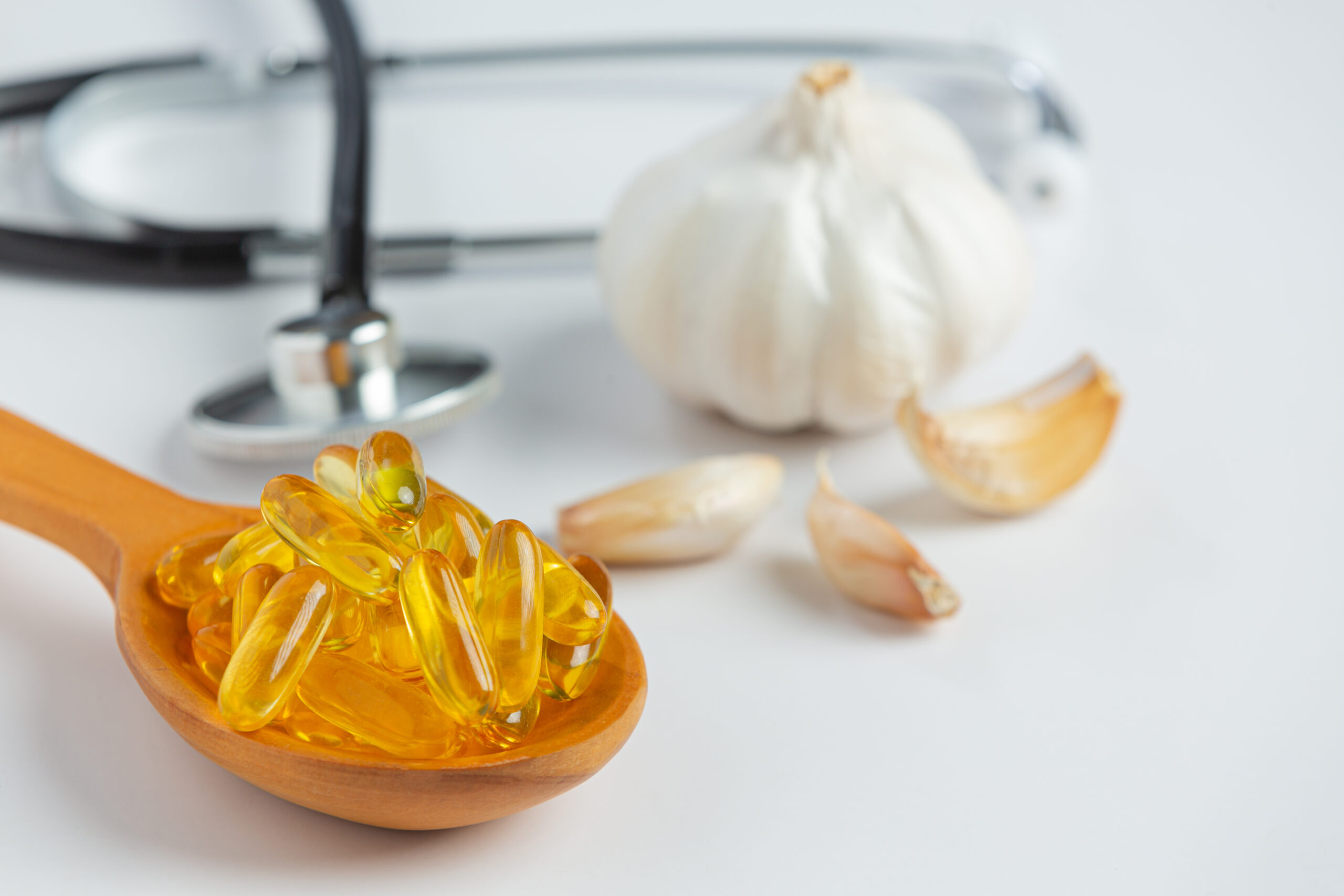A new study shows a link between low vitamin D levels and inflammation. Researchers discovered that vitamin D supplementation could help reduce inflammation in chronic inflammatory conditions.
- Researchers examined the effects of vitamin D on low-grade inflammation.
- Vitamin D deficiency is associated with higher levels of inflammatory biomarkers.
- The researchers concluded that improving vitamin D status in deficient patients could reduce their risk of developing chronic diseases with inflammatory components.
Systematic low-grade inflammation refers to the prolonged release and maintenance of inflammatory molecules. It can be linked with various health conditions.
Vitamin D is well-known for its ability to regulate calcium levels. However, recent studies suggest that vitamin D may also modulate the body’s inflammatory response.
Several studies have shown that vitamin D concentrations are related to C-reactive protein levels (CRP), a widely used biomarker of inflammation.
Low vitamin D levels may increase CRP, as shown in random trials.
In a study, researchers recently examined evidence that vitamin D levels may influence CRP levels.
Researchers discovered a direct relationship between low vitamin D and higher CRP levels. The researchers believe that the findings could serve as a biomarker in identifying individuals at risk for inflammatory diseases.
Dr. Michael F. Holick, a professor of medicine at Boston University School of Medicine, stated that there is mounting evidence that improving vitamin D status decreases the risk of autoimmune disorders like type 1 diabetes, multiple Sclerosis, and other inflammatory conditions such as type 2 diabetes, heart disease, and stroke.
He said this is in line with the VITAL trial, which found that people who took 2000 IUs of Vitamin D3 for up to five years showed a 22% reduction in the risk of developing autoimmune disorders.
The study was published in the International Journal of Epidemiology.
In This Article
Low vitamin D, more inflammation
The study involved the analysis of data from 294,970 people unrelated to White-British ancestry obtained from the U.K. Biobank.
Data on health included 25-hydroxyvitamin D or 25(OH), D- levels–a standard measure for vitamin D–and CRP Concentrations.
The average 25(OH)D concentration was 50 nmol/L. 11.7% had concentrations lower than that threshold of 25 nmol/L.
Participants completed questionnaires that provided information about their lifestyles and health.
The researchers analyzed the data and found that only vitamin D deficient participants had elevated CRP levels.
Researchers also discovered that vitamin D deficiency patients could be helped to reduce inflammation.
Researchers noted that this support a previously proposed threshold effect which suggests correcting vitamin D deficiencies might reduce low-grade inflammation and possibly mitigate the risk of developing inflammatory-related illnesses.
The researchers noted that genetically-predicted CRP concentration did not appear to affect vitamin D levels in linear and non-linear statistical analyses.
Related: 10 signs that you are lacking vitamin C
Reducing autoimmune risk

Dr. Elina Hypponen from the University of South Australia is a nutritional and genetic epidemiology professor. She was one of the authors of the study.
“In cellular and animal experiments, hormonal vitamin D inhibits the production of inflammatory cytokines like interleukin-12 (IL-12).”
The researchers also noted that vitamin D might promote the production of IL-10, an anti-inflammatory cytokine.
Dr. Bruce Hollis, a professor of pediatrics at the Medical University of South Carolina who was not part of the study, agreed with Prof. Hypponen’s findings and pointed out that these are “well-known control points of Vitamin D at the cell level.”
He told MNT, “To say vitamin D is an essential immune regulator is an understatement.”
Researchers concluded that improving vitamin-D status in the deficiency area could reduce systemic inflammation and possibly mitigate the risk of developing inflammatory-related conditions.
Professor Hypponen responded to questions about the study’s limitations by pointing out that it only examined vitamin D’s effects on CRP and could not be used to confirm the mechanism.
Dr. Nik Tsotakos (assistant professor of biology at The Pennsylvania State University) who was not involved in the study, told:
“The study was very well done, but it is important to remember that data was gathered from hundreds of thousands of people. One limitation I can point out to the study is that inflammation was only determined by levels of CRP, which, while sensitive, is not specific.
He pointed out that studying vitamin D levels at the molecular and cellular levels is necessary to understand why autoimmune diseases are common.
Vitamin D controversy

Dr. David Cutler, a Santa Monica-based family medicine physician, was not part of the study. He also stressed that vitamin D’s effects are “an area of ongoing controversy.”
“Even the presumptive bone-enhancing properties of vitamin D were called into question by a large study that spanned over 25,000 people and found no reduction in fracture risk from vitamin D. This was based on a recent study that showed a link between lower vitamin D levels and higher levels c-reactive proteins. He told that it was probably not.
Dr. Cutler explained that association is not the same thing as causation.
He noted, for example, that low vitamin levels in COVID patients might not necessarily increase COVID-19 risks. This is because people who are generally sick, stay indoors, and are susceptible to COVID-19 may be less likely to get sunlight, increasing their vitamin D.
He also noted that low vitamin D is not well defined.
“A severe vitamin D deficiency could lead to osteoporosis in the elderly and abnormal bone formation in children. He said that subtle deficiencies, although often associated with many diseases, have not been shown to cause or contribute to any disease.
Supplementing children’s foods with cereal and cow’s milk has virtually eliminated rickets, while vitamin D supplements have had a minimal impact on osteoporosis, fractures, and other conditions in the elderly. There is always the possibility of vitamin D excess causing bone pain and kidney damage. Dr. David Cutler
Vitamin D supplements

Dr. Hollis suggested that people check whether they have a clinically diagnosed Vitamin D deficiency before taking supplements.
“I recommend taking a vitamin D supplement daily. I recommend a circulating amount of 25(OH) to be 50ng/ml. My entire family and I take a 10,000-IU/day supplement. Since then, we haven’t had any issues. A blood test is unnecessary, but it’s easy to take the supplement.
Dr. Tsotakos noted, however: “It is very little to no benefit regarding CRP levels of vitamin D supplementation to individuals who have serum 25(OH)D of more than 30nmol/L, which is the lower end of the reference range. This means individuals with a clinical deficiency are more likely to benefit from vitamin D supplementation.”
“Over-the-counter vitamin D supplements usually contain relatively low doses but are very safe. Dr. Hypponnen noted that supplementation is often unnecessary, but it can be taken by those who do not need it.
A blood test might help you determine if your deficiency is present.
“From late autumn to late spring, it can be helpful to take a bit of extra vitamin D. While for safety reasons, blood tests are not usually needed when taking the type of doses recommended in public health guidelines, if you want to make sure you are not eating supplements for no benefit, a blood test will help.”– Dr. Elina Hypponen
